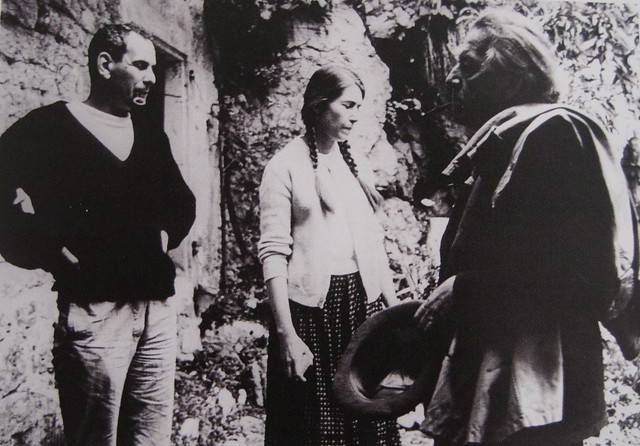I can't say what got me thinking about Mad Love again, after all these years, but Andre Breton's admonishment in this passage is just so fitting of me right now. I really do concern myself just a bit too much with food. Our limitedness, our ceaseless reaching out towards the good--what Plato might call our finite, erotic nature--certainly concerns more than my single-minded epicureanism. But what can I say? I'm happy just to talk about reaching for the next forkful here. And with that, I give you Breton's splendid dreamscape to consider:
So butter tree it is.On a very general level, concern with material necessity frustrates love as well as poetry, in concentrating all the human attention that should be available on the problem of subsistence. The concern has proved itself, along the way, so pressing as to leave no room for any other in the minds of some of my friends. In Orotava it gives way to the most beautiful of childhood mirages. I was quite astonished, in the time when we were just beginning to practice automatic writing, at the frequency with which the words tree for bread, tree for butter, and so on tended to recur in our texts. [...] In any case the bread tree or the butter tree dominate by their whole verifiable existence the innumerable creations that can thus be obtained. What is so appealing about the idea of them when you are very young has to do with reconciling particularly well the pleasure principle with the reality principle. One myth among all the others, clear and without harshness, is developed starting with this tree: that of the inexhaustible natural generosity able to see the most diverse human needs. The very air is suddenly composed of the trembling veils of a thousand imponderable Virginias. How to resist the charm of a garden like this one, where all the trees of a providential type have gathered? In this place the great moral and other constructions of grown men, founded as they are on the glorification of effort, of heavy labor, are endangered. Livelihood we call "earned" returns to the aspect it had for us in childhood: it takes on once more the character of a life wasted. Wasted for games, wasted for love. What is required most earnestly to keep up this sort of life loses all its value at the passage of the great dream trees, each of which declines for a man an immeasurable quality included in the very syllables of its name. The bread tree, the butter tree have called them the salt tree, the pepper tree: a whole frugal lunch is being improvised. How hungry we are! The traveler tree and the soap tree are going to let us present ourselves at the table with clean hands. (Mad Love, pp. 79-81)
Pictured above in the foreground is Breton, along with Mimi Parent and Jean Benoit, Canadian ex-pats and surrealists circa 1963. (I'm not sure whom to credit, but the photo is from Mimi Parent, Jean Benoit. Surrealistes, a coffee-table art book published by the Musee National des Beaux-arts du Quebec for their special Mimi Parent/Jean Benoit exhibit back in 2004.)


No comments:
Post a Comment